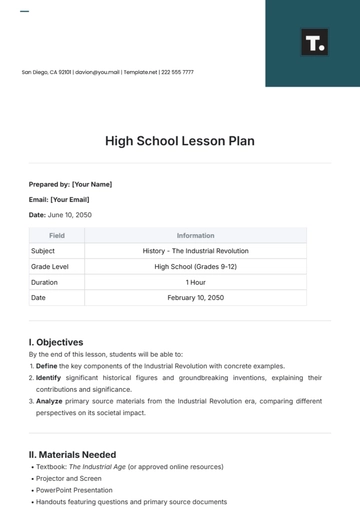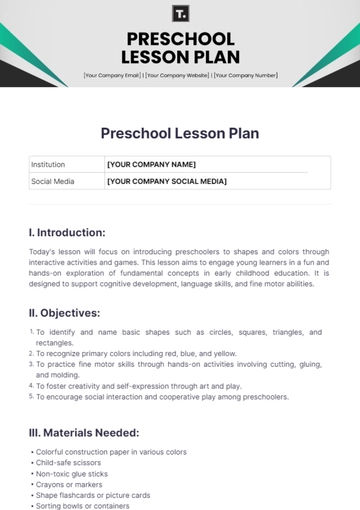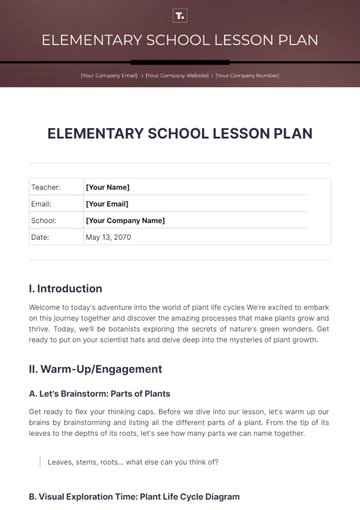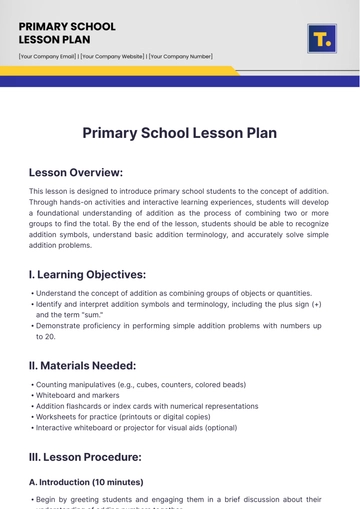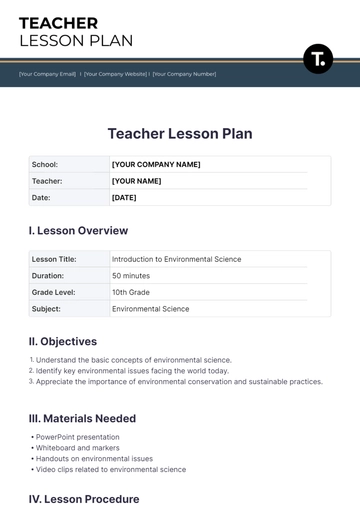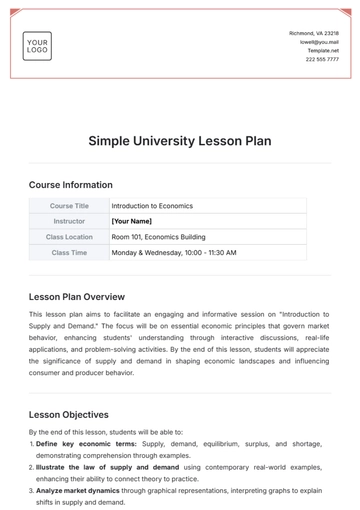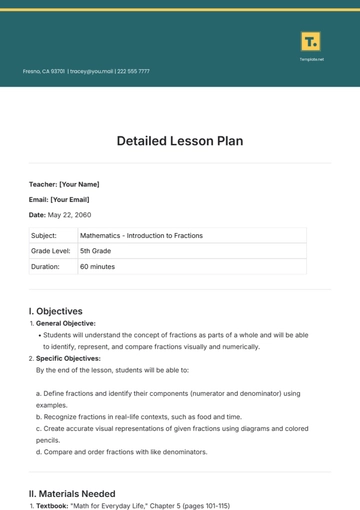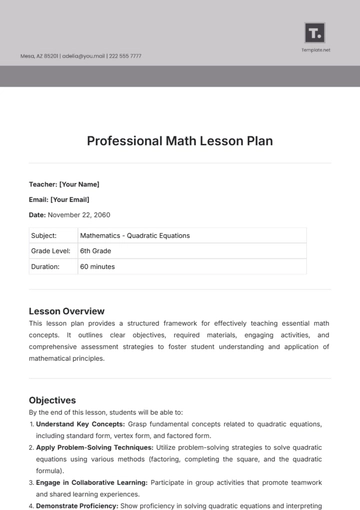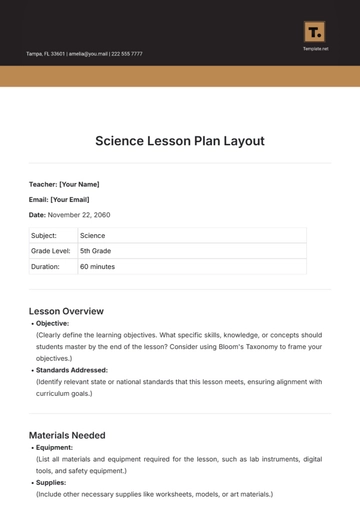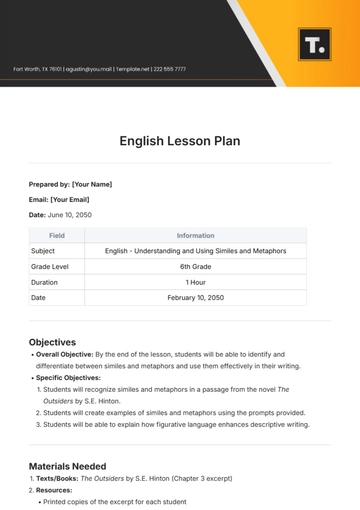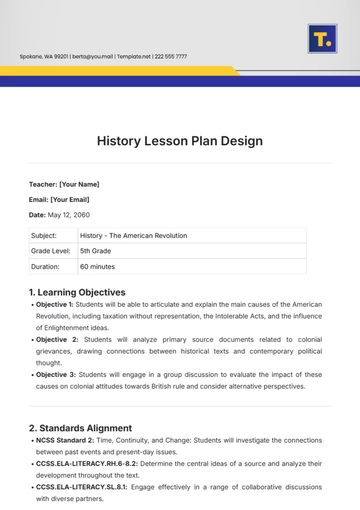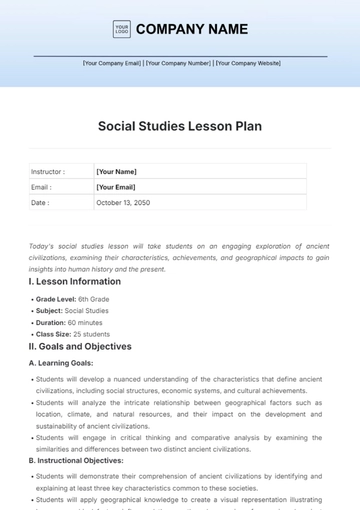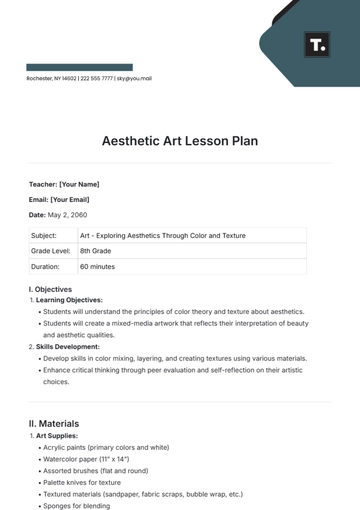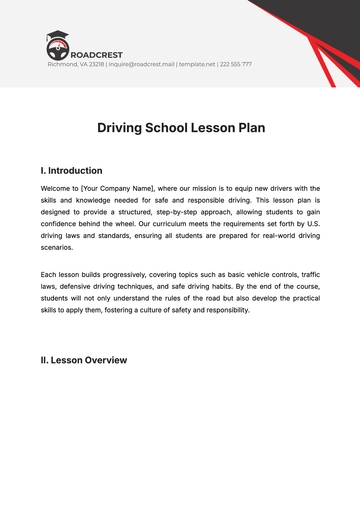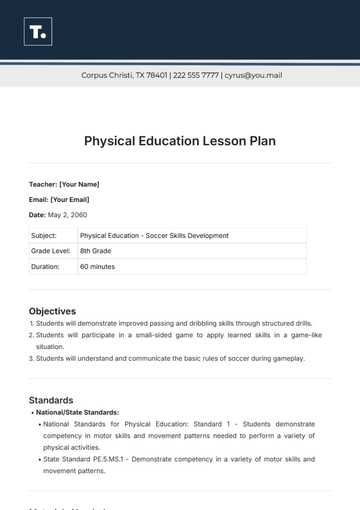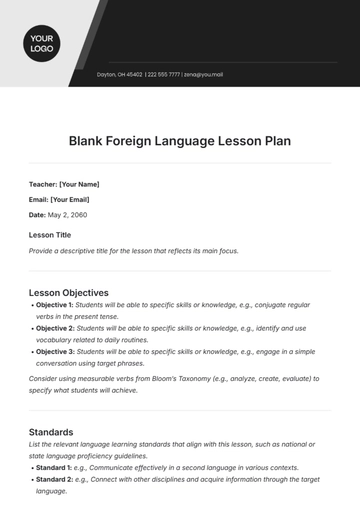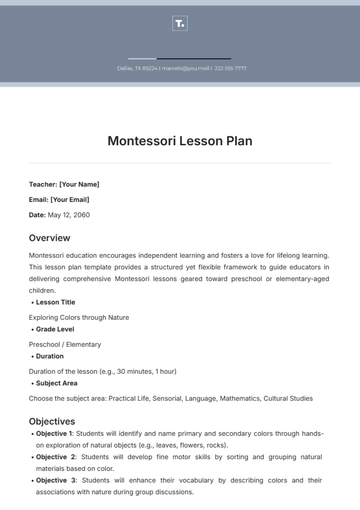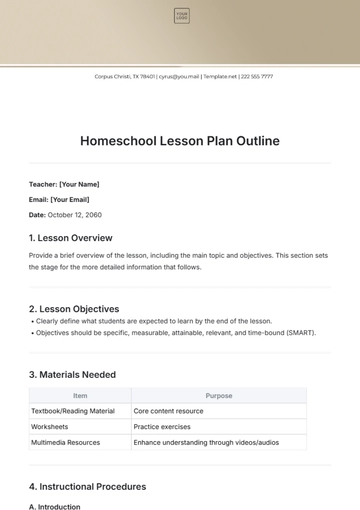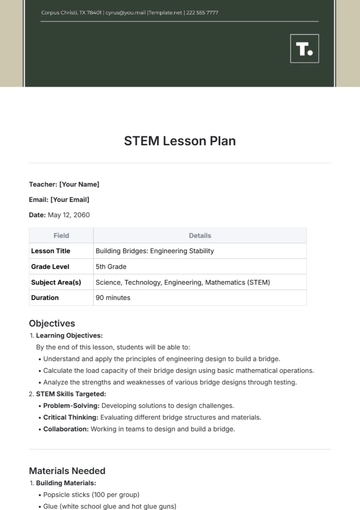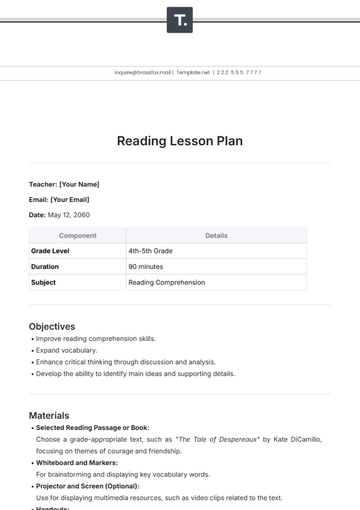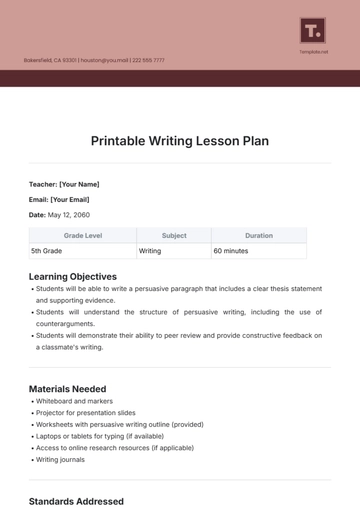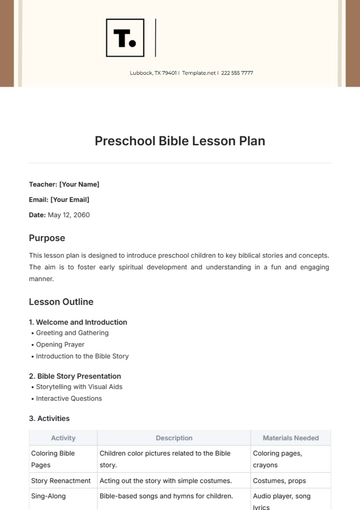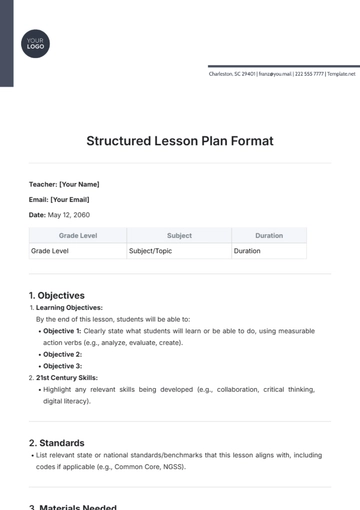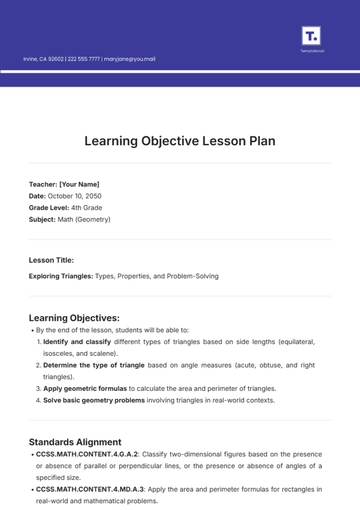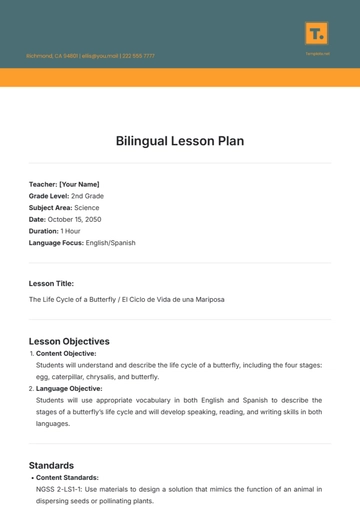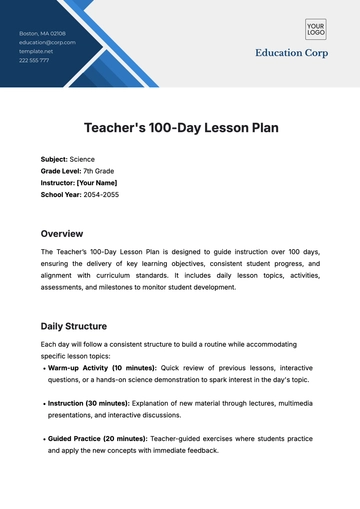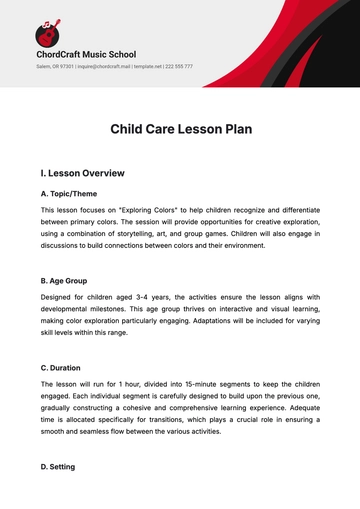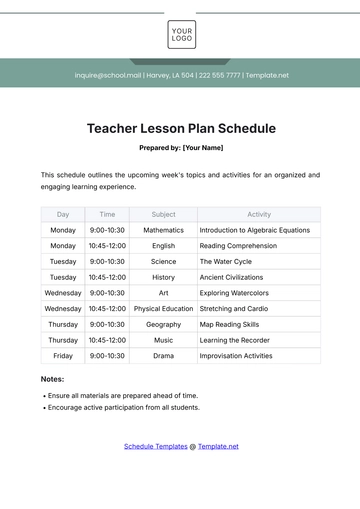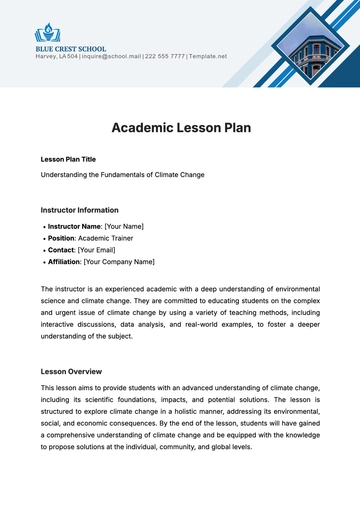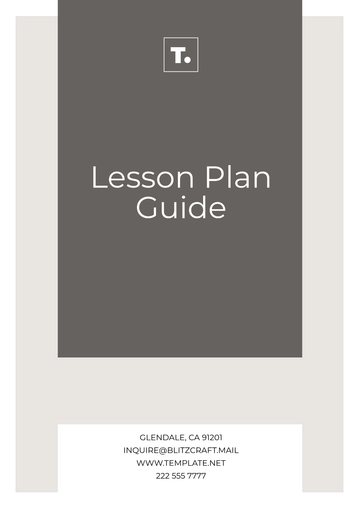Free Kindergarten Lesson Plan
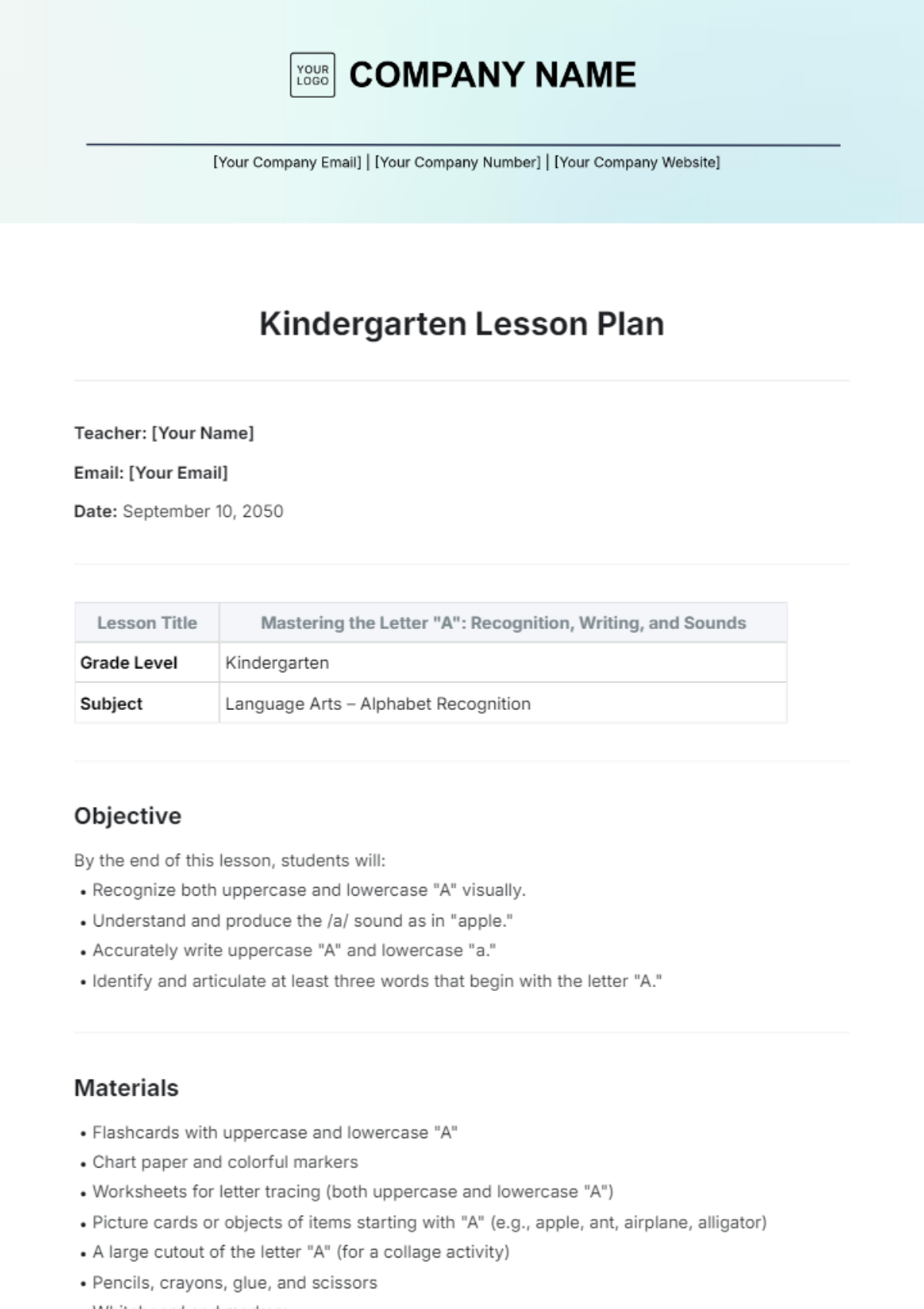
Teacher: [Your Name]
Email: [Your Email]
Date: September 10, 2050
Lesson Title | Mastering the Letter "A": Recognition, Writing, and Sounds |
|---|---|
Grade Level | Kindergarten |
Subject | Language Arts – Alphabet Recognition |
Objective
By the end of this lesson, students will:
Recognize both uppercase and lowercase "A" visually.
Understand and produce the /a/ sound as in "apple."
Accurately write uppercase "A" and lowercase "a."
Identify and articulate at least three words that begin with the letter "A."
Materials
Flashcards with uppercase and lowercase "A"
Chart paper and colorful markers
Worksheets for letter tracing (both uppercase and lowercase "A")
Picture cards or objects of items starting with "A" (e.g., apple, ant, airplane, alligator)
A large cutout of the letter "A" (for a collage activity)
Pencils, crayons, glue, and scissors
Whiteboard and markers
Alphabet song or video (optional for a fun transition)
Introduction (10 minutes)
Engage the Class with the Alphabet Song: Begin with a fun, interactive version of the alphabet song to engage students and prepare them for the day's letter exploration. Incorporate clapping or motions as the class sings along.
Introduce the Star of the Day – Letter "A": Show the students a flashcard with uppercase and lowercase "A" written on it. Pronounce the letter's name, and say, "Today, we're learning all about the letter A! The letter A makes the /a/ sound, just like in 'apple.' Can you say it with me?" Ask students to repeat the sound several times.
Visual and Sound Connection: Display pictures or actual objects that start with the letter "A" (such as apple, ant, and airplane). Encourage students to connect the sound /a/ with each object by emphasizing the first sound of the word.
Main Activities (25 minutes)
Interactive Letter Hunt (5 minutes):
Show picture cards with various items, some starting with "A" (e.g., apple, ant, airplane), while others begin with letters.
Ask students to raise their hands or shout "A!" whenever they spot a picture that begins with the letter "A."
For added engagement, pass around real objects like an apple or toy airplane and let students take turns identifying the sound.
Guided Letter Writing Practice (10 minutes):
Provide each student with a worksheet that includes both uppercase and lowercase "A" for tracing.
Demonstrate the correct formation of the letter on the whiteboard, explaining how to start at the top for uppercase "A" and where to begin for lowercase "a."
As students work on their tracing, circulate the room to offer individual guidance, ensuring correct posture and pencil grip.
Creative "A" Collage Art (10 minutes):
Hand out large paper cutouts of the letter "A." Invite students to color or decorate their "A" using crayons.
Next, allow them to paste or draw pictures of items that begin with "A" around the letter. Encourage creativity—students can even attempt to write the words next to their drawings (e.g., 'apple,' 'ant').
Display the collages around the classroom as a celebration of learning!
Closing (5 minutes)
Recap and Celebrate Learning:
Gather the students on the carpet and ask, “Who can tell me the letter we learned today?” Encourage responses, and follow up by asking a few students to share their favorite word that starts with "A."
Revisit the /a/ sound, and have students make the sound together. Reinforce their learning by saying, "Now every time you see an apple or hear the word airplane, remember the letter 'A'!"
Goodbye Song with a Twist: End the lesson with a fun goodbye song, but this time replace some words with the /a/ sound, such as “Good-a-bye, see you tomorrow!"—creating a playful association with the letter "A."
Assessment
Informal Observation: Throughout the lesson, observe how well students identify the letter "A" and its sound during the letter hunt and object identification. Take note of students who need additional support.
Worksheets Review: Review the tracing worksheets and ensure students are correctly forming both uppercase and lowercase "A."
Art Collage: Check students' collages for understanding—did they choose words that start with "A"? Can they verbally explain their choices?
Differentiation:
For Struggling Learners: Provide hand-over-hand assistance during the tracing exercise or offer additional practice with tactile materials (such as sand trays or playdough to form the letter "A").
For Advanced Learners: Challenge students to think of more complex "A" words (e.g., astronaut, alligator) or have them write short sentences using "A" words like “An apple is red.”
Extension Activity/Homework
Take-Home Worksheet: Send home a worksheet that includes more letter "A" tracing and simple exercises (e.g., circling pictures that start with "A").
Parental Involvement: Encourage parents to help students find more items at home that begin with "A" (e.g., apron, acorn, etc.) and practice the letter's sound.
- 100% Customizable, free editor
- Access 1 Million+ Templates, photo’s & graphics
- Download or share as a template
- Click and replace photos, graphics, text, backgrounds
- Resize, crop, AI write & more
- Access advanced editor
Welcome to the pinnacle of efficiency in early childhood education with Template.net's Kindergarten Lesson Plan Template. Crafted with educators in mind, this editable and customizable gem streamlines lesson planning like never before. Harness the power of our AI Editable Tool to tailor lessons to your classroom's needs. Elevate teaching experiences and maximize learning outcomes effortlessly.
